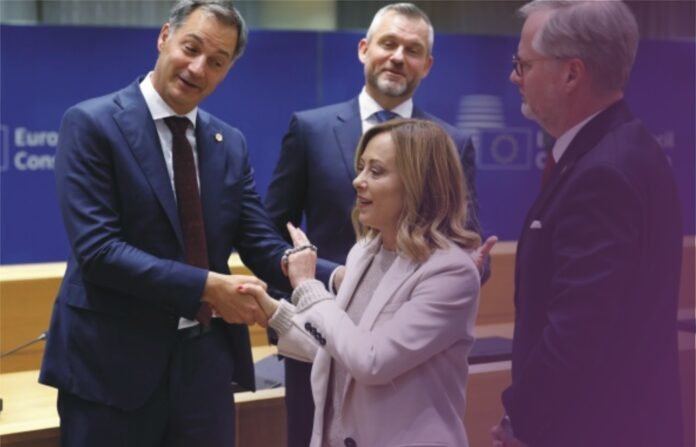Hungary and Italy’s conservative leaders, Viktor Orbán and Giorgia Meloni, have strongly criticized the EU’s recent nomination process for high-level positions, calling it undemocratic and out of touch with the recent election results that saw a rise in right-wing support in the European Parliament.
Exclusion from Negotiations
Orbán and Meloni were excluded from preliminary talks and were unable to secure top roles for their political groups in the upcoming EU political cycle. This led to their dissatisfaction with the nominations of Ursula von der Leyen for European Commission President, António Costa for European Council President, and Kaja Kallas for High Representative for Foreign Affairs and Security Policy.
Voting Against Nominations
- Meloni: Voted against Costa and Kallas, abstained on von der Leyen.
- Orbán: Voted against von der Leyen, abstained on Kallas, and supported Costa.
Reaction to Nomination Process
Meloni condemned the nomination process, stating it did not reflect the June election results, where her party became the third-largest force in the Parliament. She emphasized respecting the voters’ choices and working to enhance Italy’s influence in Europe.
Orbán echoed these sentiments, accusing the EU of deceiving voters and criticizing the alliance of centrists, socialists, and liberals for sidelining the right-wing surge.
Impact on Future Politics
Although Hungary and Italy’s opposition won’t affect the final nominations, von der Leyen may still seek support from Meloni’s MEPs for her confirmation vote. Orbán’s stance also sets a contentious tone as Hungary takes on the EU Council presidency, facing calls from MEPs to block Hungary’s presidency due to its governance record.
Criticism from MEPs
German Green MEPs, along with 20,000 citizens, have petitioned the European Council to prevent Hungary from assuming the presidency, citing corruption and rule of law issues, and likening the EU to a dictatorship.
Hungary and Italy’s rejection highlights deep divisions within the EU, with conservative leaders challenging the current nomination process and advocating for a representation that aligns with recent electoral shifts.



